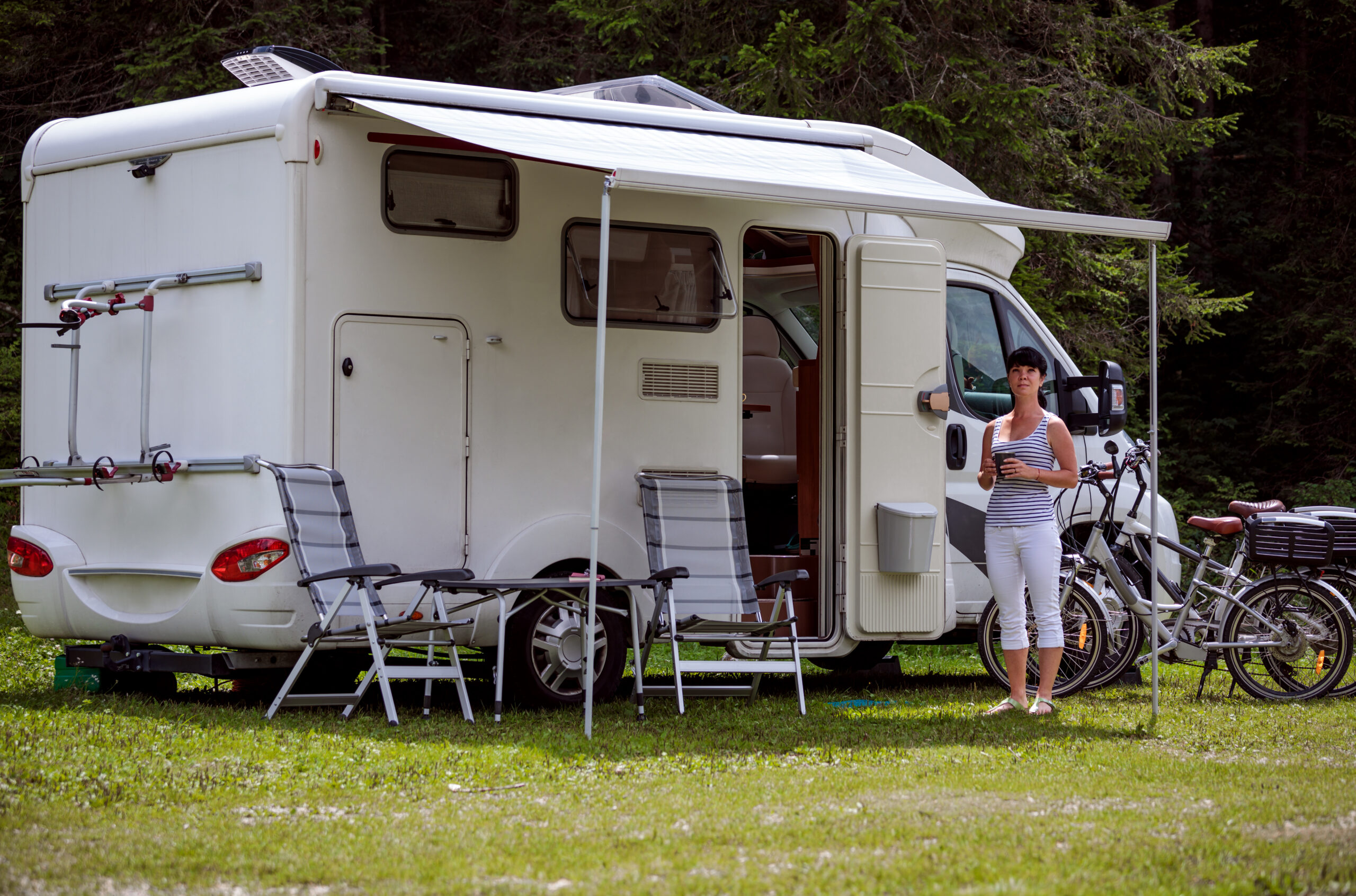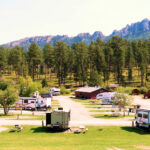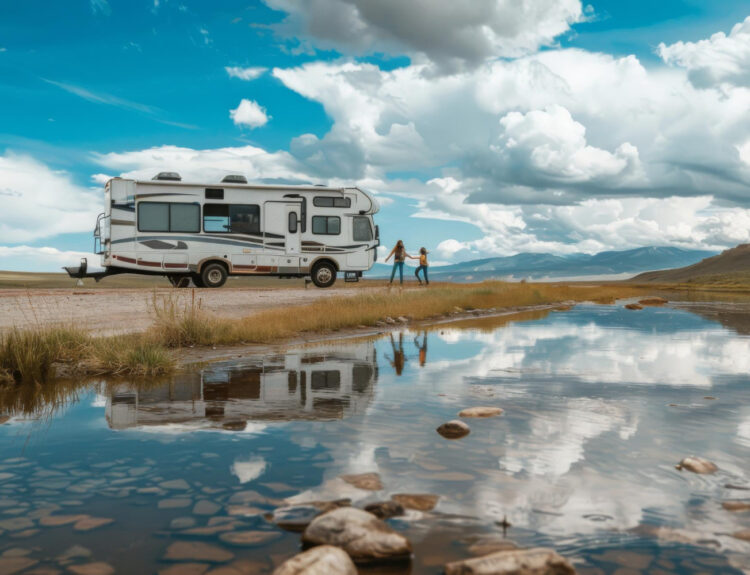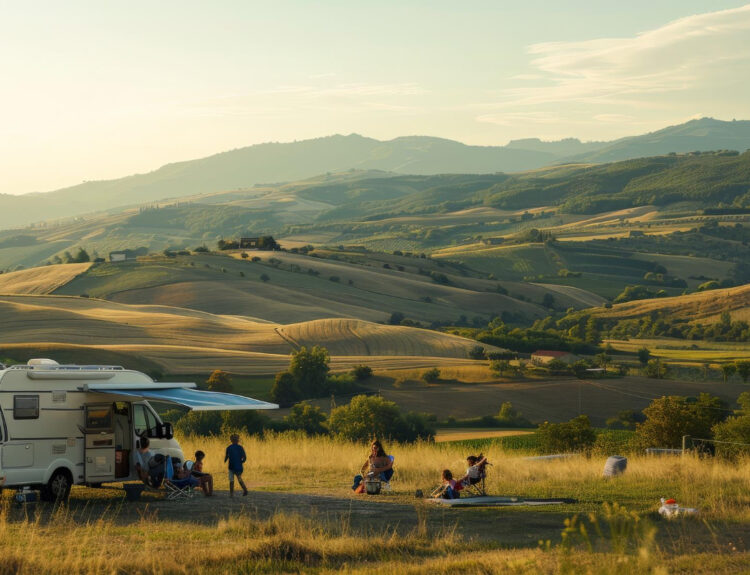The trend of long-term rentals in campgrounds is growing rapidly, presenting a lucrative opportunity for campground owners to diversify their revenue streams. Optimizing your campground for long-term rentals can lead to increased occupancy rates, a steady income, and a loyal customer base.
This article will guide you through the best practices for attracting and managing long-term renters, ensuring your business thrives in this competitive market. By focusing on infrastructure improvements, strategic marketing, and exceptional customer service, campground owners can transform their properties into desirable destinations for long-term stays.
Understanding Long-Term Rentals in Campgrounds
What are Long-Term Rentals?
Long-term rentals in campgrounds refer to stays that extend beyond the typical weekend or week-long visits, often ranging from several months to even a year or more.
Unlike short-term rentals, long-term rentals require a different approach to management, pricing, and amenities. They cater to a different audience, often including snowbirds, remote workers, and individuals or families looking for a temporary residence during relocations or extended vacations.
Long-term rentals can be classified into several categories, including monthly rentals, seasonal rentals, and annual leases.
- Monthly rentals are typically favored by remote workers or individuals on extended vacations.
- Seasonal rentals attract snowbirds who move south for the winter or families seeking a summer retreat.
- Annual leases appeal to those in transitional periods, such as people relocating for work or retirees looking for a semi-permanent residence.
Understanding these distinctions helps campground owners tailor their offerings to meet the specific demands of each group.
Benefits of Long-Term Rentals for Campground Owners
- Steady Income Stream: Long-term rentals provide a reliable source of income, reducing the financial fluctuations that come with short-term stays. The security of knowing that spaces are booked for months at a time allows for better financial planning and investment in campground improvements.
- Increased Occupancy Rates: By attracting long-term renters, you can maintain higher occupancy rates throughout the year, even during off-peak seasons. This stability can protect against the cyclical nature of traditional short-term camping seasons and enhance revenue predictability.
- Building a Loyal Customer Base: Long-term renters often become loyal customers who return year after year, providing stability and repeat business. They are more likely to develop a sense of community and belonging, which can lead to positive word-of-mouth referrals and a strong reputation for your campground.
- Reduced Turnover and Maintenance Costs: Frequent turnover of short-term renters can lead to higher maintenance costs and more intensive cleaning schedules. Long-term renters typically result in less frequent turnover, which can reduce wear and tear on your facilities and lower maintenance expenses.
- Improved Cash Flow Management: Long-term rentals allow for better cash flow management. With predictable income from long-term renters, you can budget more effectively and allocate funds for upgrades and enhancements to your campground.
- Enhanced Community Atmosphere: Long-term renters contribute to a stable and engaged community within your campground. They are more likely to participate in communal activities, respect the property, and foster a friendly atmosphere that attracts new renters.
Assessing Your Current Setup
Evaluating Your Campground’s Potential for Long-Term Rentals
To determine if your campground is suitable for long-term rentals, evaluate your current infrastructure and amenities. Consider the location, accessibility, and overall appeal of your campground.
- Infrastructure and Amenities: Assess if your campground has the necessary facilities for long-term stays, such as full hookups, reliable Wi-Fi, laundry services, and secure storage options. Long-term renters look for comfort and convenience that mirror residential living standards.
- Location and Accessibility: Ensure your campground is easily accessible and situated in a desirable location for extended stays. Proximity to essential services like grocery stores, healthcare facilities, and recreational areas can significantly enhance the attractiveness of your campground for long-term renters.
- Site Layout and Privacy: Long-term renters often seek privacy and spacious sites. Evaluate whether your campground can offer secluded and roomy sites that provide a sense of personal space and comfort.
- Safety and Security: Long-term renters prioritize safety and security. Ensure your campground has adequate lighting, secure entry points, and emergency protocols in place to create a safe environment for extended stays.
Market Research and Target Audience
- Identifying Your Ideal Long-Term Renters: Understanding who your long-term renters are is crucial. These can include retirees (snowbirds), remote workers, traveling nurses, or people in transition between homes. Tailor your offerings to meet their specific needs and preferences.
- Seasonal vs. Year-Round Renters: Identify whether your campground will cater to seasonal long-term renters, such as snowbirds escaping cold climates, or if you will aim to attract year-round residents. Each group has different needs and expectations.
Seasonal renters may prioritize amenities like heated pools and organized social activities, while year-round renters might focus on reliable internet access and proximity to urban centers.
- Analyzing Competitors: Research local and regional competitors to understand what they offer and identify gaps in the market. This analysis can help you position your campground uniquely and attract renters looking for specific amenities or experiences that competitors do not provide.
- Understanding Market Trends: Stay informed about trends in the RV and camping industry. For instance, the rise in remote work has led to more people seeking long-term rental options that allow them to travel while maintaining their jobs.
By understanding these trends, you can tailor your services to meet emerging demands.
Making Necessary Changes
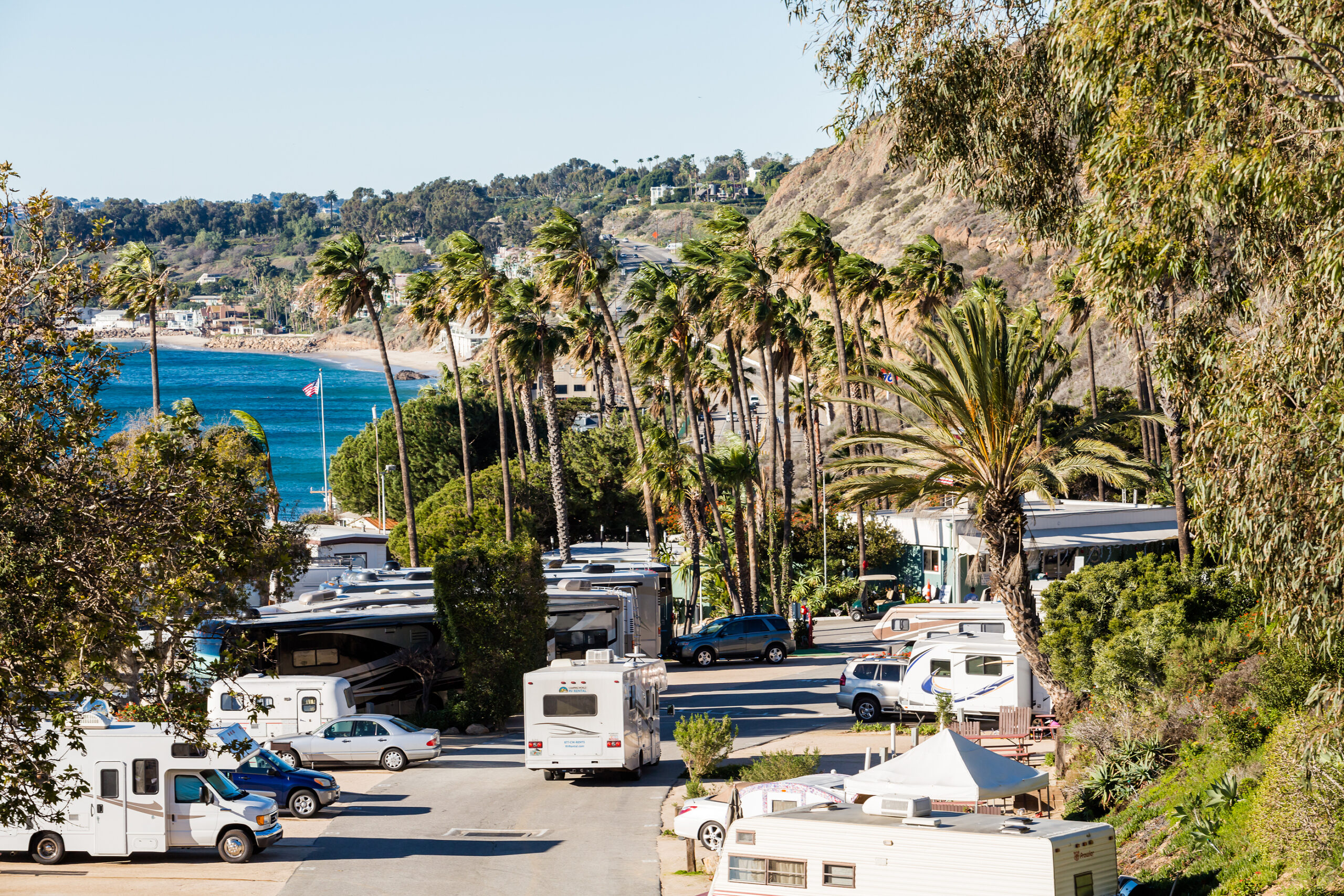
Enhancing Infrastructure and Amenities
To attract long-term renters, it’s essential to invest in infrastructure and amenities that enhance their stay.
Necessary Facilities for Long-Term Stays
Ensure your campground offers full hookups (water, sewer, and electric), reliable high-speed internet, laundry facilities, clean and well-maintained restrooms, and secure storage areas. These amenities are crucial for the comfort and convenience of long-term renters. Additionally, consider installing RV maintenance stations and offering services such as propane refills and waste disposal.
Upgrading Existing Amenities
Consider upgrading existing amenities to improve the overall experience. This can include adding more spacious and private sites, improving landscaping, creating recreational facilities like swimming pools, playgrounds for kids, or fitness centers, and providing communal spaces for social activities.
Creating Work-Friendly Spaces
With the increase in remote work, providing work-friendly spaces such as co-working areas, private offices, and reliable internet access can attract remote workers looking for long-term stays. Offering amenities like printers, charging stations, and quiet work areas can set your campground apart.
Navigating Zoning and Legal Considerations
Understanding Local Zoning Laws and Regulations
Before promoting long-term rentals, ensure your campground complies with local zoning laws and regulations. Long-term stays may have different legal requirements compared to short-term camping, including building codes, land use regulations, and health and safety standards. Consult with local authorities to ensure your campground meets all necessary regulations.
Compliance with Health and Safety Standards
Regularly inspect your facilities to ensure they meet health and safety standards. This includes proper sanitation, fire safety measures, and accessibility for individuals with disabilities. Implementing regular safety drills and having clear emergency procedures can also enhance the safety of your campground.
Insurance and Liability
Ensure you have adequate insurance coverage for long-term rentals. This includes liability insurance to protect against accidents and property damage. Consult with an insurance professional to understand the specific needs and coverage options for long-term rentals.
Rental Agreements and Legal Documentation
Develop comprehensive rental agreements that outline the terms and conditions of long-term stays. This should include payment terms, rules and regulations, maintenance responsibilities, and procedures for handling disputes. Having clear and legally binding agreements can protect both you and your renters.
Developing a Pricing Strategy
Determining Your Pricing Model
Setting the right pricing model for long-term rentals requires careful consideration of various factors.
These include your location, the amenities you offer, the seasonality of demand, and the competitive landscape. Conduct a thorough analysis to determine a pricing model that is attractive to renters while ensuring profitability for your campground.
Research what other campgrounds in your area charge for long-term rentals. This will help you set competitive prices that align with market expectations while highlighting any unique value your campground provides. Consider offering tiered pricing based on the amenities provided, location within the campground, and length of stay.
Implement dynamic pricing strategies to reflect the demand fluctuations throughout the year. Higher rates during peak seasons and discounts during off-peak times can help maintain steady occupancy and maximize revenue.
Offering Discounts and Promotions
- Seasonal Discounts: Offer discounts during off-peak seasons to attract long-term renters. This can help maintain steady occupancy rates throughout the year. For example, you might offer a percentage off the monthly rate for stays during the winter months when demand is typically lower.
- Loyalty Programs and Referral Discounts: Implement loyalty programs that reward long-term renters for repeat stays. Additionally, offer referral discounts to encourage existing renters to bring in new long-term renters. This can create a sense of community and encourage renters to stay longer and refer others.
- Early Booking Incentives: Encourage early bookings by offering discounts to renters who commit to long-term stays in advance. This can help you secure occupancy well ahead of time and improve cash flow management.
- Bundling Services: Consider offering bundled services, such as including utilities, Wi-Fi, and access to premium amenities in the rental price. Bundling can simplify the rental process for renters and add value to your offerings.
Marketing Your Campground to Long-Term Renters
Building an Online Presence
A strong online presence is essential for attracting long-term renters.
Ensure your website is user-friendly, mobile-responsive, and easy to navigate. Highlight long-term rental options, showcase amenities through high-quality photos, and provide detailed information about the facilities and services available. Include testimonials and reviews from satisfied long-term renters to build credibility and trust.
Optimize your website for search engines by using relevant keywords, such as “long-term RV rentals” and “extended stay campgrounds.” Create informative content that addresses the needs and interests of long-term renters to improve your search engine ranking.
Offer an online booking system that allows potential renters to check availability and make reservations easily. Providing a seamless booking experience can increase conversion rates and attract more long-term renters.
Premium Website Builder is a solution Roverpass has developed to help RV parks create stunning and effective websites. Our experts can help you create a visually appealing, user-friendly website that effectively communicates your eco-friendly ethos. With SEO optimization and content creation skills, we can ensure your site ranks well in search engines, making it easier for potential long-term guests to find you.
Additionally, the premium website can be directly integrated with our campground reservation software, effectively serving as your 24/7 sales team.
Leveraging Social Media
Utilize social media platforms like Facebook, Instagram, and Pinterest to reach potential long-term renters. These platforms are ideal for sharing engaging content, showcasing your campground, and interacting with your audience.
Share posts about the benefits of long-term stays, highlight special offers and promotions, and showcase testimonials from satisfied long-term renters. Use a mix of photos, videos, and stories to keep your content engaging and informative.
- Virtual Tours: Create virtual tours of your campground to give potential renters a feel for the space and amenities.
- User-Generated Content: Encourage current renters to share their experiences and tag your campground in their posts. This can provide authentic testimonials and increase your reach.
- Events and Activities: Promote upcoming events and activities that might interest long-term renters. Highlighting a vibrant community and social opportunities can make your campground more appealing.
Listing on Online Travel Agencies (OTAs)
Online travel agencies (OTAs) can significantly increase your visibility to potential long-term renters. These platforms often have a large audience and provide valuable exposure. Ensure your listings are detailed, with high-quality photos and comprehensive descriptions of your long-term rental options.
Regularly update your listings to reflect current availability, prices, and any new amenities or services. Respond promptly to inquiries and reviews to maintain a positive reputation on these platforms.
RoverPass’ Channel Management Optimizer allows RV parks to manage reservations from multiple OTAs in one single place. Real-time updates on availability, rates, and reservation information eliminate the possibility of double bookings or overbooking, making your calendar much more trustworthy.
Managing Long-Term Renters
Creating Rental Agreements
A clear and comprehensive rental agreement is essential for managing long-term renters.
- Key Elements of a Long-Term Rental Agreement: Include details about the rental period, payment terms, rules and regulations, maintenance responsibilities, and procedures for handling disputes. Ensure both parties understand and agree to the terms before the rental begins.
- Setting Clear Expectations and Policies: Communicate your campground’s policies and expectations clearly to long-term renters. This includes quiet hours, pet policies, visitor policies, and guidelines for using communal facilities. Providing a welcome packet with all the necessary information can help new renters feel at home and understand the rules.
Providing Excellent Customer Service
- Communication Best Practices: Maintain open and consistent communication with long-term renters. Regularly check in with them to address any concerns and ensure they are satisfied with their stay. Use multiple channels, such as email, phone, and in-person visits, to stay connected.
- Handling Complaints and Issues: Develop a protocol for handling complaints and issues promptly and professionally. Address problems quickly to maintain a positive relationship with renters and prevent minor issues from escalating.
- Building Relationships: Take the time to get to know your long-term renters and build relationships with them. Personal interactions and a friendly demeanor can go a long way in making renters feel valued and appreciated.
Maintaining the Property
- Regular Maintenance Schedules: Establish a regular maintenance schedule to keep your campground in excellent condition. This includes routine inspections, cleaning, and repairs. Proactive maintenance can prevent larger issues and ensure a pleasant environment for long-term renters.
- Responding to Maintenance Requests Promptly: Respond to maintenance requests from long-term renters promptly. Quick and efficient resolution of issues demonstrates your commitment to providing a high-quality experience.
- Enhancing the Environment: Regularly update and enhance the campground’s environment. This can include landscaping, adding new amenities, and upgrading existing facilities. Creating a visually appealing and well-maintained environment can enhance the overall experience for long-term renters.
Enhancing the Long-Term Rental Experience
Community Building
Fostering a sense of community can enhance the long-term rental experience and encourage renters to return.
- Organizing Events and Activities: Host events and activities that bring long-term renters together. This can include potlucks, game nights, outdoor movie screenings, and group excursions. These activities help build relationships and create a sense of belonging.
- Creating a Sense of Community Among Renters: Encourage renters to interact and support one another. Consider creating a community board or online group where they can share information, plan activities, and provide support. Promoting a sense of community can increase renter satisfaction and encourage longer stays.
Gathering Feedback and Making Improvements
- Soliciting Feedback from Renters: Regularly solicit feedback from long-term renters to understand their experiences and identify areas for improvement. Use surveys, suggestion boxes, and direct conversations to gather insights.
- Implementing Changes Based on Feedback: Act on the feedback you receive to make necessary improvements. Demonstrating that you value renter input and are willing to make changes can significantly enhance satisfaction and loyalty.
- Continuous Improvement: Commit to continuous improvement by regularly assessing your services and amenities and making updates as needed. Staying proactive and responsive to renter feedback can ensure your campground remains a desirable destination for long-term stays.
Frequently Asked Questions
What are the benefits of long-term rentals for campground owners?
Long-term rentals provide a steady income stream, increase occupancy rates, build a loyal customer base, reduce turnover and maintenance costs, improve cash flow management, and enhance the community atmosphere within your campground.
How can I attract long-term renters to my campground?
To attract long-term renters, invest in infrastructure and amenities that enhance their stay, develop competitive pricing strategies, offer discounts and promotions, build a strong online presence, leverage social media, and list your campground on popular OTAs.
What amenities are essential for long-term stays?
Essential amenities for long-term stays include full hookups (water, sewer, and electric), reliable high-speed internet, laundry facilities, clean restrooms, secure storage areas, and recreational facilities like swimming pools and fitness centers.
How should I price long-term rentals?
Price long-term rentals based on factors like location, amenities, seasonality, and competitive analysis. Consider offering tiered pricing, seasonal discounts, loyalty programs, referral discounts, early booking incentives, and bundled services to attract long-term renters.
What should be included in a long-term rental agreement?
A long-term rental agreement should include details about the rental period, payment terms, rules and regulations, maintenance responsibilities, and procedures for handling disputes. Clear and comprehensive agreements protect both you and your renters.
How can I market my campground to long-term renters?
Market your campground by creating a user-friendly website, optimizing it for SEO, leveraging social media platforms like Facebook and Instagram, sharing engaging content, listing on popular OTAs, and highlighting unique amenities and renter testimonials.
What are the legal considerations for long-term rentals?
Ensure your campground complies with local zoning laws and regulations, health and safety standards, and has adequate insurance coverage. Develop comprehensive rental agreements and consult with legal and insurance professionals to understand specific requirements.
How can I foster a sense of community among long-term renters?
Foster a sense of community by organizing events and activities, encouraging renter interactions, creating community boards or online groups, and promoting a friendly and supportive atmosphere. Building relationships can enhance satisfaction and encourage longer stays.
How should I handle maintenance requests from long-term renters?
Respond to maintenance requests promptly and efficiently. Establish a regular maintenance schedule to keep your campground in excellent condition and demonstrate your commitment to providing a high-quality experience for long-term renters.
For more tips and insights, keep reading our blog to help your campground business thrive!

